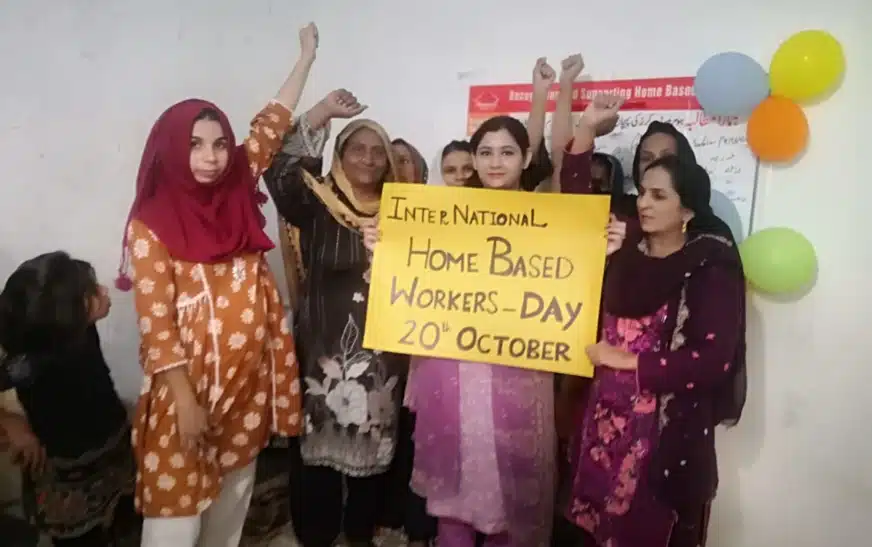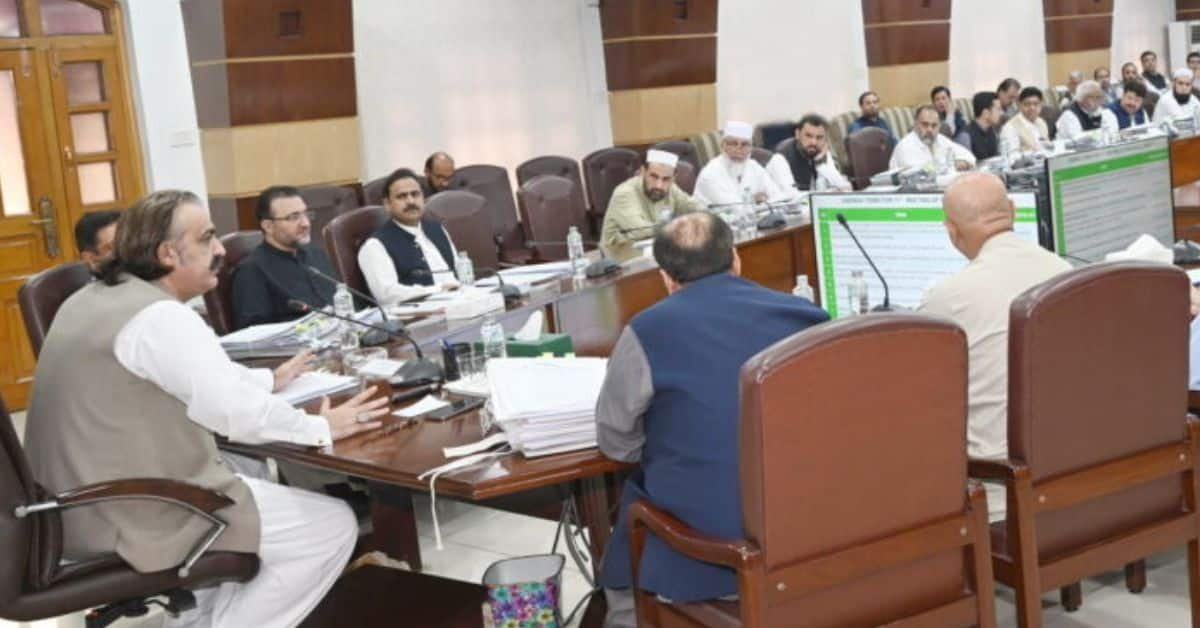In a show of solidarity and resilience, Women Home-Based Workers’ Unions are commemorating International Home-Based Workers’ Day by calling for urgent government action on the implementation of key provincial legislation: the Sindh HBWs Act 2018, the Punjab HBWs Act 2023, the KP HBWs Act 2021, and the Balochistan HBWs Act 2022.
The unions demand the finalisation of rules and the immediate registration of women home-based workers (HBWs) across all provinces. They are also pressing for the ratification of International Labour Organization (ILO) Conventions C177 and C190 to ensure protection of women workers against workplace exploitation and harassment.
Home-based workers (HBWs) in Pakistan have been severely impacted by the economic fallout of the COVID-19 pandemic and the subsequent surge in inflation. For the over 20 million HBWs in Pakistan, most of whom are women, the pandemic worsened existing vulnerabilities, stripping them of income, access to markets, and basic social protections.
Coupled with the current hyperinflation, these workers are facing a cost-of-living crisis that threatens their very survival. Many remain unregistered, unprotected by labour laws, and denied access to social security.
On this critical occasion, women home-based workers, organised under their respective unions, have presented a charter of demands. They call for provincial labour frameworks to prioritise their plight.
The Government of Punjab, in particular, is urged to recognise that home-based workers have been disproportionately affected by the economic crisis and to allocate budgetary resources for their registration and social security.
Union members also demand that the Punjab government, under the HBWs Act 2023, urgently finalise minimum wages for skilled home-based workers and invest in skill development initiatives to improve their economic standing.
Rabail Kiran, a union member, emphasised the importance of including women in the textile and garment sectors in all labour policies, noting that these workers remain invisible despite their vital contributions. “We are a key part of supply chains, yet we are not counted or recognised. We demand to be acknowledged and protected,” she said.
Ume Laila of HomeNet Pakistan echoed this, reflecting on the challenges HBWs have long faced. “The journey has been tough. While it is encouraging that Pakistan is the first country to have four provincial laws for HBWs, the reality is that many of these workers continue to struggle without the basic legal protections they deserve.
COVID-19 exacerbated these struggles, and rising inflation has left HBWs in an even more precarious position,” she explained. “Despite these challenges, HBWs are a significant part of Pakistan’s informal economy, contributing to the GDP. But without formal recognition, they remain vulnerable to exploitation.”
Laila also urged the Government of Pakistan to develop a comprehensive and standardised action plan for the implementation of HBW laws. “We need a national-level social security framework, a minimum wage structure, and clear Standard Operating Procedures (SOPs) for engaging with brands.
Currently, these women, who work within supply chains, are exploited with poor wages, informal contracts, and face delays in payments. Additionally, their occupational health risks go unnoticed and unaddressed,” she added.
She also called for women home-based workers in the garment and textile industries, particularly those at the third tier of the supply chain, to be formally recognised as workers. “The government must introduce a due diligence law under the National Action Plan on Human Rights to ensure their recognition and protection,” Laila stressed.
Humera Aslam reiterated these demands, pointing out that women working in the garment and textile sectors face numerous human rights violations, including workplace harassment and wage theft. “The government must intervene to stop the exploitation of these workers and establish mechanisms to protect their rights,” she urged.
Union workers also called for critical amendments to the Punjab HBWs Law 2023, to ensure a streamlined registration process for social security in all provinces, including Sindh, Balochistan, and KP.
Chanting slogans such as “We demand a comprehensive grievance mechanism, regular data collection of HBWs in supply chains, inclusion in labour policies, budget allocations, and the ratification of ILO C177 and C190,” union members concluded the event by reaffirming their commitment to advocating for the rights and protection of home-based workers across Pakistan.















